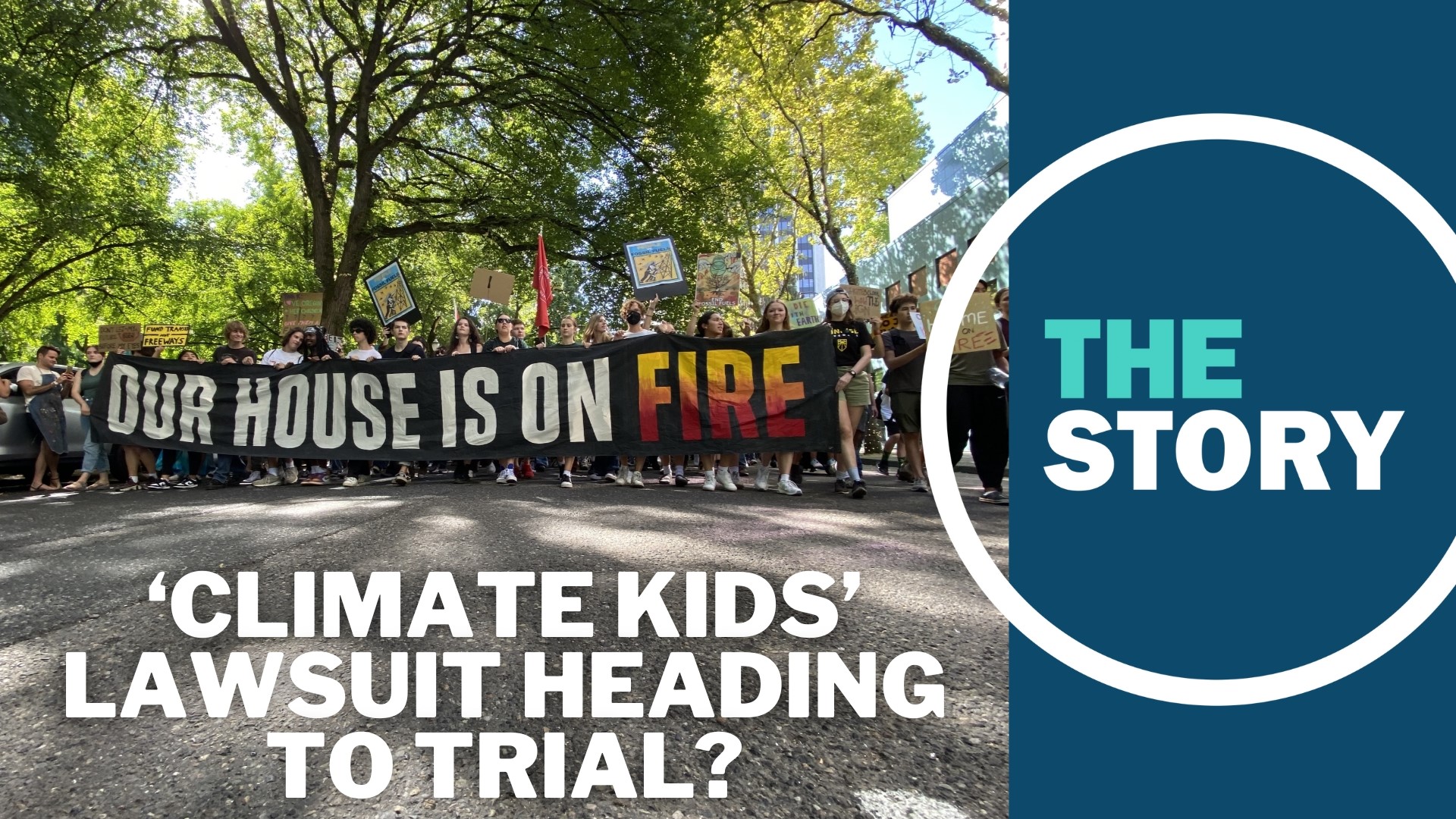PORTLAND, Oregon —
After more than eight years, numerous motions to dismiss and months of settlement talks, Oregon’s landmark youth climate case finally appears headed to trial.
The case, Juliana v. U.S., was filed in 2015 by 21 young Oregonians who alleged the federal government had failed to protect their right to a stable climate.
In late December, U.S. District Court Judge Ann Aiken ruled against the Department of Justice’s most recent attempt to have the case dismissed.
“This catastrophe is the great emergency of our time and compels urgent action,” Aiken wrote of climate change in her opinion, calling the government’s climate strategy an “unhurried, inchmeal, bureaucratic response to our most dire emergency.”
This is not the first time the case has seemed headed for trial, however. In 2018, the U.S. Supreme Court halted the case days before a trial was set to begin.
Mat dos Santos is general counsel for Our Children’s Trust, the firm representing the plaintiffs. Despite the case's rocky track record, he feels confident the trial will move forward — possibly starting later this year.
“I'm incredibly excited about Judge Adkins' ruling,” dos Santos said, noting that the plaintiffs have been waiting years to argue their case. “Having the judge rule in their favor and set the pathway towards going to trial was a really big moment.”
The plaintiffs have argued that the federal government has not only stood idly by while climate change has increasingly impacted them, but that it has played an active role in incentivizing an economy based on the use of fossil fuels. In her opinion, Aiken noted that the government doles out roughly $20 billion in subsidies to oil and gas companies annually.
“Our government has knowingly, willfully made choices and pushed forward an energy system that is dependent on fossil fuels and that is helping to contribute to climate chaos,” Kelsey Juliana, the lead plaintiff in the case, told KGW in 2019.
A lot has changed since the case was first filed. Back then, Barack Obama was president and John Kitzhaber was governor of Oregon. In 2015, climate change, while still seen as a dire problem by many, had yet to become the mainstream issue it is today.
“I think there's been a bit of an awakening about the importance and the urgency of this issue,” dos Santos said. “It used to be that there were a handful of scientists really pounding on the desk to try and move this issue forward, and now I think there really is a cultural shift happening.”
Dos Santos said that was likely due, at least in part, to climate-fueled extreme weather events in the Pacific Northwest and around the world.
“We've seen unprecedented wildfires, we've seen huge storms impacting us, changes in weather patterns that have really had a lot of significant impacts; economic, social impact,” dos Santos said.
Throughout the case, the government has argued that climate change is too large and complex of an issue to be decided by the courts and, instead, should be handled by Congress.
Dos Santos disagreed, noting that many of the nation’s most controversial and complex issues have been decided by the courts, like abortion and school segregation.
“All of those issues went through our court system,” dos Santos said. “Yes, they were big and complex, but that doesn't mean that the courts don't have a role to play.”
Dos Santos said Aiken plans to hold a scheduling conference in the coming weeks and that, if the case proceeds as planned, the trial could start by the end of the year.
For the young people at the heart of the case, it’s been a long time coming.
“Some of them have literally grown into adulthood during the course of this litigation,” dos Santos said. “They're ready to take their case to trial and have their voices heard in court.”

